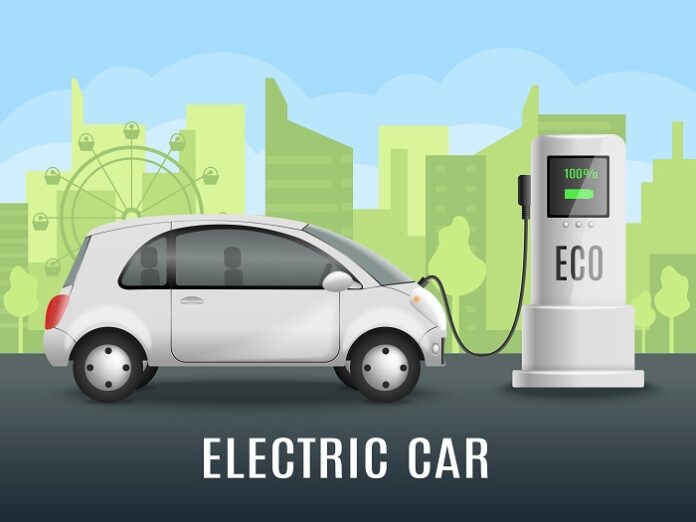Electric cars have been around for quite a while now, but it has only been in the past few years that they have become more mainstream. With the series of diesel emission scandals leading to a push towards greener technology, many countries are looking to increase the use of electric cars on their roads, as they offer many benefits compared to vehicles with traditional combustion engines.
In Europe, electric cars have been gaining popularity for some time now. The region has been pushing for greener technology, and electric vehicles have become a significant focus. But which country is leading the electric vehicle revolution in Europe? Let’s take a closer look.
A Record-Breaking Market Share
Alternative propulsion vehicles (APVs) have claimed over half of the EU car market, with more than 1.3 million vehicles registered in the last quarter of 2022. APVs include vehicles that run without traditional fossil fuels like petrol and diesel or hybrids that combine a fossil fuel engine with a renewable energy source, such as electric batteries. This marks the first time APVs have outperformed petrol and diesel vehicle sales, as the European Automobile Manufacturers Association (ACEA) reported.
Battery electric vehicles (BEVs) also broke records in 2022, capturing 12.1% of the total market share, a significant increase from 9.1% in 2021 to 1.9% in 2019. Hybrid cars have also performed well, achieving a market share of 22.6%, a 22.2% increase compared to last year. The BEV market experienced exceptional growth in the last quarter of 2022. EU registrations of new battery electric cars rose by 31.6%, reaching 406,890 units sold from October to December.
A decade ago, electric cars (BEVs and plug-in hybrid electric vehicles, or PHEVs) accounted for just 0.5% of the automotive market.
Norway
Norway has set the bar high for the rest of the world regarding electric vehicles. The country has been investing in electrified transport for over a decade. The Norwegian government has implemented a range of measures designed to encourage the uptake of electric vehicles. These include tax incentives for electric cars, a zero-emissions requirement for public transport, and toll exemptions for electric vehicles.
Germany
As one of Europe’s largest and most influential economies, Germany has been making significant strides towards adopting electric vehicles. The German government has set a goal to have 15 million electric cars on the roads by 2030. This ambitious target is backed by government incentives, which include grants for purchasing electric vehicles and tax exemptions for company cars. Germany is also home to some of the world’s leading automotive manufacturers, including Volkswagen, which is investing heavily in electric vehicle production. However, it is worth noting that the German automaker has been at the centre of the industry’s largest scandal, Dieselgate, leading to substantial fines and numerous diesel claims from car owners. Go to Emissions.co.uk to learn more about diesel compensation claims and the other automakers accused of cheating emissions.
France
France has been actively pushing for adopting electric vehicles as part of its efforts to reduce carbon emissions and improve air quality. The country is committed to making 100% of its new cars electric by 2035. To achieve this goal, the French government has introduced various measures, including establishing a network of public charging stations and financial incentives for purchasing electric cars. In 2022, electric vehicles accounted for 21.5% of all new cars sold in France.
Netherlands
The Netherlands has one of the world’s highest electric vehicle adoption rates. The country’s government has been actively promoting the use of electric vehicles for over a decade. Today, electric vehicles account for over 25% of the country’s new car sales. The Dutch government has established a range of policies to encourage the uptake of electric vehicles, including tax incentives, free parking for electric cars, and access to bus and taxi lanes. The country also has one of the world’s largest fast-charging networks.
United Kingdom
Britain’s global electric vehicle (EV) market position is slipping. While government efforts have led to a significant increase in EV adoption since 2012, and the UK boasts Europe’s largest EV battery manufacturing plant, Germany surpassed the UK in EV sales in 2017, and China now manufactures half of all EVs worldwide. In an attempt to catch up, the UK government has committed to banning the sale of new fossil-fuelled vehicles by 2040, following the lead of countries like Norway and France. However, this goal falls short of the more ambitious targets set by other nations, highlighting Britain’s relatively modest role in EV production. The UK has been the hub of various diesel-related issues, including Vauxhall’s involvement in the diesel emissions scandal.
While Norway has been the leader in the European electric vehicle market for years, the recent strides by countries such as the Netherlands, France, and Germany indicate a dynamic shift in the EV market, favouring a green and sustainable future.
Image by macrovector on Freepik





